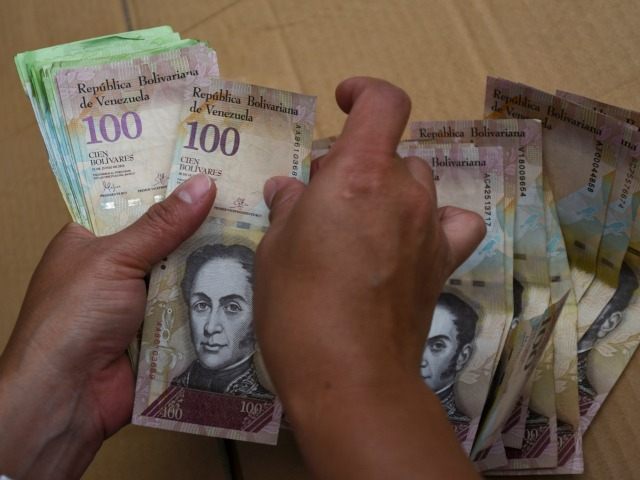Venezuela’s new Vice President of Economics believes “inflation does not exist” and believes entrepreneurs are an “economic tumor” upon socialist governments. The hard-line socialist Luis Salas, a 39-year-old professor, is expected to exacerbate the nation’s already alarming finance woes.
Salas has been appointed the Vice President of Economics and Minister of Productive Economy in a vast reshuffling of President Nicolás Maduro’s cabinet, believed to have been prompted in part by the socialists’ sound defeat in last months legislative elections. For the first time in 17 years, anti-socialist opposition members took control of the National Assembly this week in a tense ceremony.
Maduro is billing Salas as the solution to the socialist economy’s years-long threat of collapse under hyperinflation and strict price controls. “We are faced with a new economic emergency and in the coming days I will present a rescue plan,” he announced this week. Economics experts are describing Salas as “the most concerning appointment by far” in Maduro’s new stable of cabinet ministers for bringing an extreme interpretation of Maduro’s economic ideology into the highest levels of government.
Rather than accept socialist price controls and limits on the market as the reason for Venezuela’s collapsing financial situation, Maduro has consistently blamed an “economic war” waged on his government by the business class of the nation and the United States. “We have been looking for a sustainable way to move from resistance to an economic war — an offensive that will create our own economy and strengthen it,” he said this week.
Before losing December’s legislative elections, Maduro ensured to place the blame for any socialist loss on an American conspiracy. “Where there is a conspiracy, there is a gringo… If there is a sabotage of our economy, behind it you will find a gringo adviser,” he said in October.
Salas’ essays and remarks before being appointed are very much in line with Maduro’s attitude towards the Venezuelan economy. In particular, news outlets are citing a controversial pamphlet called “22 Ways to Understand and Combat the Economic War” in which Salas asserts that “inflation does not exist in real life,” calling it a neoliberal fabrication.
“Inflation is used as a tool of political struggle to pressure governments, impose interests, or simply to conspire to make the population desperate, demoralized, and hateful,” he writes in the pamphlet. “Scarcity… is a necessary condition to imposing the logic of survival of the fittest, which in this case is expressed through who has the most money at the time,” he adds.
Salas goes on to condemn legendary economic philosopher Adam Smith. “The metaphor of the invisible hand invented by Adam Smith and abused by vulgar economists only serves to make invisible the hands of those who really control and regulate the production and commercialization of goods, and therefore prices,” he once wrote, adding that Venezuelan businessmen were “ill-bred and parasitic” and an “economic tumor” on the nation.
He has also expressed doubts that the concept of supply and demand is real. “Prices do not increase because of the rarity of items, but because of relationships in which those products are produced, which in capitalist economies are mediated by individual lust for wealth through the exploitation of others,” he wrote in the pamphlet.
In his first remarks following his appointment, Salas warned against “catastrophism” and downplayed the severity of Venezuela’s economic crisis. “This is not the worst crisis Venezuela has seen economically,” he assured listeners.
The current exchange rate for the Venezuelan bolívar, according to currency monitoring site Dolar Today, is 838.89 bolívars for one American dollar. At its peak, inflation in the country has been estimated at over 600 percent. The Venezuelan government has refused to publish official data on inflation for more than a year.
As a result, Venezuelans are suffering extreme shortages of everything from beer to basic foods like flour and oil. Medicine is so difficult to import that many pharmacies have turned to using veterinary supplies to treat patients. Grocery lines can last up to 5 hours due to government-imposed rations, birthing a new line of work: professional line-sitters who are paid to wait in line while the buyer runs other errands.

COMMENTS
Please let us know if you're having issues with commenting.